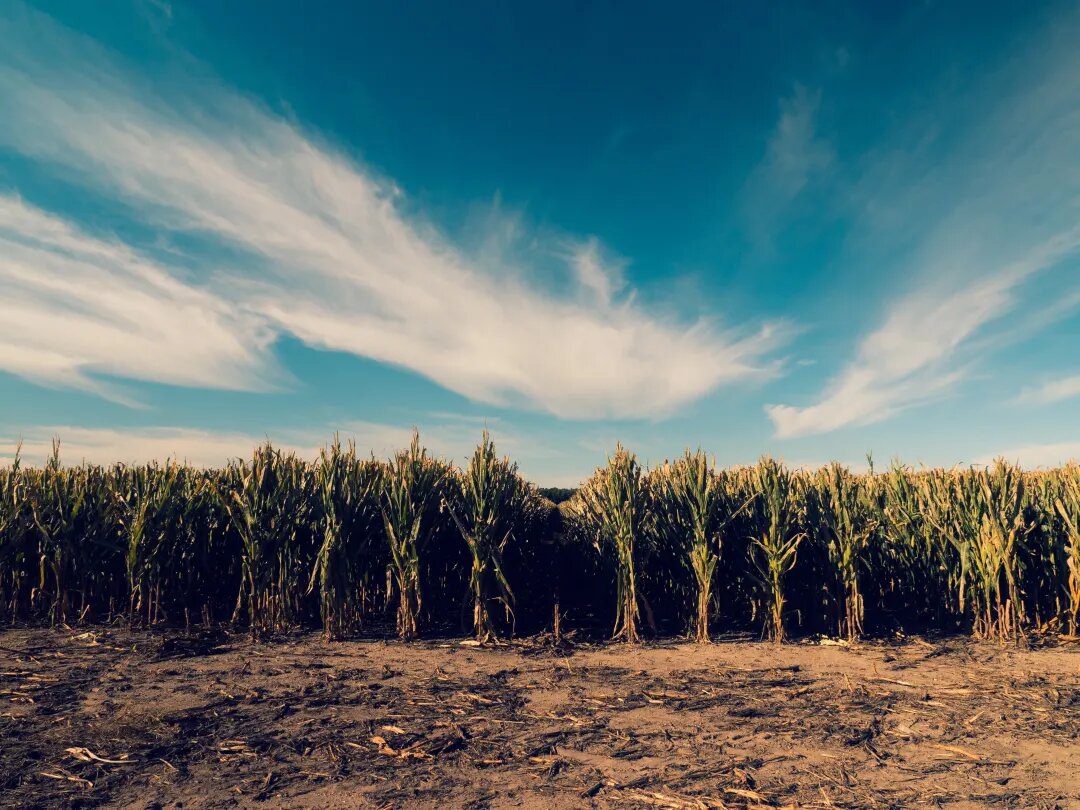Growing up agriculturally-adjacent, literally across the street from my grandparents’ cornfields, I learned to revere the earth through observation. In school, I learned about recycling and brought those lessons home in an attempt to limit how much trash ended up in distant landfills.
By the time I became a Christian in college, the foundation of my love for the natural world had been laid. Pastors and teachers taught me many things, but the occasional sermon on the beginning of Genesis with a token mention of our role as stewards of the earth was the most that I ever remember hearing about caring for creation.
The world of horticulture, ecology, and conservation I loved existed in one bubble, and God’s people I loved existed in another. For a long, long time, there was very little overlap between those two bubbles. Why should Christians care about plants and animals when there are souls to be saved?! People first, then planet.
Over the years, I’ve learned more and more about how intricately connected people are to the planet. God created all of us—elephant and alligator, dung beetle and dandelion—to be reliant on each other for a balanced and healthy ecosystem, and we’re right in the middle of it.
A healthy planet means healthy people. Caring for creation is such a vital expression of love for God and love for others that it can’t be relegated to a corner, separate from our faith. It needs to be front and center, alongside all of the other initiatives we have in place to reach people for Christ.
Following Jesus in a Warming World: A Christian Call to Climate Action by Kyle Meyaard-Schaap

Following Jesus in a Warming World © (2023) InterVarsity Press
For a long time now, Christians—especially those of us raised in or formed by evangelicalism—have been silent, or even cynical and critical, about creation care, or climate change, or conservation efforts. However, many Christians in the Millennial and Gen Z generations grew up with a growing concern and awareness about the plight of our planet, wondering if their faith had anything to say about our responsibility to the earth.
In his book Following Jesus in a Warming World: A Christian Call to Climate Action, Kyle Meyaard-Schaap calls for an end to the silence.
“Those of us who have come to Christian climate action have come to it circuitously,” Meyaard-Schaap writes, “via some combination of lonely epiphany, painful deconstruction, and growing isolation from friends and family who view our Spirit-breathed conviction as political radicalization rather than Christian discipleship.”
I live in the Midwest, so I’m not exposed to a whole lot of outright hostility toward climate change. We’re too polite. Instead, I’ve observed just a bit of passive angst, casual apathy, or irritated impatience about the subject. Climate change is most often the butt of some jokes.
That kind of posture is intimidating. How can I, not a climate scientist, even begin to be openly passionate about and articulate the urgency that I feel, that many people feel, to reverse the course we’ve put ourselves on, to save the planet? And who even says that anyway, “Save the Planet” anymore? Who are you kidding, kid? Take a bath, hippie!
All kidding aside, these generational divides and dualistic worldviews do not have to exist. We can actually love people, serve our neighbors, care for the poor, protect life, and altogether fulfill the mission of Christ, through creation care. Creation care isn’t an add-on to our faith, it’s a central expression and mandate of our faith:
“After all, how can we love our neighbors well if we remain silent in the face of circumstances that threaten their livelihoods and poison their bodies? How can we tell our brothers and sisters in Christ, ‘I believe you,’ when they describe the ways that climate change is harming them and their families, and then do nothing to try to change their circumstances? How can we love our neighbors without fighting for their right to clean air and water, and a safe and stale world where they can flourish and thrive? How can we be pro-life in a warming world if we ignore the myriad ways in which climate change endangers and extinguishes life?
“The Bible has a word for the kind of faith that sees the suffering of its neighbors and does nothing to respond: dead (James 2:17).”
Circumstances are dire, but they are not without hope, and that is one of the greatest gifts Christians can bring to the climate change movement. We have the hope of Christ, the hope and promise of a restored creation!
“Our task as we wait for heaven and earth to be united in perfect justice, mercy, and peace is to live now—by the power of the Holy Spirit—as if it’s already here. We are to live lives marked by joy and delight, to demand justice and mercy from our leaders, and to model lives of contentment and fulfillment. In short, to live as if God’s tomorrow is today.”
Another gift at the Christian’s fingertips is the spiritual fruit of joy. Lots of people are angry about what’s happening to the world. Anger is a strong motivator at first, but,
“it quickly consumes itself. For sustained, long-term action—the kind needed to face down the threat of climate change—we need more than anger. Every one of us needs a sense of agency. We need a community of belonging. We need hope that our actions can make a difference. We need joy.
“Joy is a concrete rebuke to the death-dealing powers and principalities that traffic in fear and despair… It is a winsome witness to the inevitable victory of justice, peace, and delight over sin, despair, and death.”
Meyaard-Schaap’s book is an inspiring and practical guide to help dissolve disdain and preconceived notions about climate action so that we can work together for real, actionable change… change of heart, change of mind, and change of behavior.
It’s time to merge our faith and our concern about creation. Following Jesus in a Warming World can help you figure out how to do it.





 Copyright
2024
Root and Vine
Copyright
2024
Root and Vine